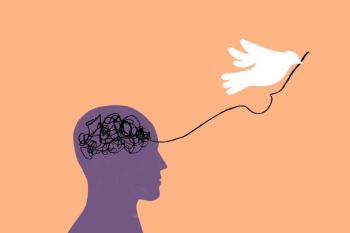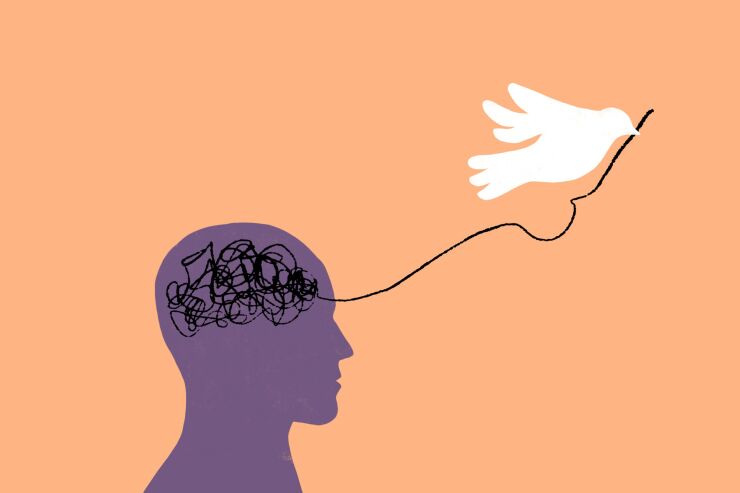
.png) Sunny Jacob
Sunny Jacob

"Just as a candle cannot burn without fire, man cannot live without a spiritual life." – Buddha
Historically, the words religious and spiritual have been used synonymously to describe all the various aspects of the concept of religion, but in contemporary usage spirituality has often become associated with the interior life of the individual, placing an emphasis upon the well-being of the "mind-body-spirit".
As Brené Brown says, “Spirituality is recognizing and celebrating that we are all inextricably connected to each other by a power greater than all of us and that our connection to that power and to one another is grounded in love and compassion. Practicing spirituality brings a sense of perspective, meaning and purpose to our lives.”
However, looking at the recent hatred, prejudices, and violence among religious groups, I feel that true spirituality is missing in our religious practices. As a result, structures and rituals take precedents over the true spiritual process. For example, the ongoing conflict in Manipur is a perfect case study, where unfortunately religion and religious places became a major target. Once hatred is let out, it will be uncontrollable by any force.
According to 2011 Census statistics, the believers of religion are a whopping 97% in India. If we take religious statistics, the percentage of believers is as follows.
Hindus -- 966,257,353 -- 79.8%
Muslims -- 172,245,158 -- 14.2%
Christians -- 27,819,588 -- 2.3%
Sikhs -- 20,833,116 -- 1.72%
The rest of them too believe in some other religions.
Invariably most Indians believe in God and say religion is very important in their lives. Nearly all Indians say they believe in God (97%), and roughly 80% of people in most religious groups say they are certain that God exists. The main exception is Buddhists, one-third of whom say they do not believe in God.
In 2010, 94% of the world's Hindus lived in India, and this is expected to remain true in 2050, when 1.3 billion Hindus are projected to live in the country. But India also is expected to have 311 million Muslims in 2050 (11% of the global total), making the country with the largest population of Muslims in the world.
As the statistics show, most Indians, irrespective of their regions and gender, claim to be 'believers'. The highest number of temples, mosques, churches, gurdwaras and other worshiping places are found in India other than any other country in the world.
Festivals, celebrations, rituals, fasting, prayer sessions, pilgrimage centres, etc. are also incredibly high among Indians. Donations to worshiping places, offerings, and sacrifices too are unmatchable. Holidays on religious festivals are highest in India.
Yes, people claim to be 'faithful' to God and to their religions. Their religious leaders, Sants, sadhus, mullahs, priests, nuns, and preachers tell the world that we are people of God!
If their claim is true, how can we account for the large-scale corruption, hatred, enmity, malpractices, cheating, massacre, rape, lawlessness, discrimination, division, deception, deceit, crime, murder, ethnic clashes, linguistic chauvinism, child labour, religious hatred, cruelty, apathy, insensitivity, falsehood and all sorts of inhuman behaviour of our people? How can we be spiritual as well as so selfish at the same time?
I think what is happening in Manipur or Haryana is the tip of an iceberg. It is the manifestation of our false religiosity. It is an ex
Haven't we compartmentalized our faith and practice? When we are in our worshiping places, we are religious and outside of our worshipping places we do not practice our religiosity. In other words, our religious practices become mere ritualism and external ex
True Spirituality encourages people to have better relationships with themselves, others, and the unknown (God). Spirituality can help you deal with stress by giving you a sense of peace, purpose, and forgiveness. It often becomes more important in times of emotional stress or ill health. It brings social harmony and interdependence among all.
In the West or in Europe many people may not be practicing religions. However, they accept people as they are, they value human dignity, they value labour, follow discipline, practice civic sense; generally they do not hate people based on their gender or religious backgrounds, do not do atrocities to fellow beings. There is high moral and ethical consciousness among people.
As religious and as believers, it is time for us to reflect on what is happening to our religions and believers. It is time for us to move from excess of external 'religious shows' to assimilation and internalisation of true religious values that exhibit social and moral responsibilities among people.
True Spirituality involves exploring certain universal themes – love, compassion, altruism, life after death, wisdom, and truth, with the knowledge that some people such as saints or enlightened individuals have achieved and manifested higher levels of development than the ordinary person. We can make them as our role models.
How do you know if someone is spiritual is a question many people raise.
A major sign of a spiritual person is that he is composed, always happy and kind to others. He/she doesn't like to degrade or put down people. They never hate the other or do violence against fellow beings. Instead, they always offer motivating and kind words, in hopes to make the world a better place. If you also believe in the same values, then yes, you're a spiritual person.
Seeing the inhuman treatment against people, as it happens in Manipur, and the failure of governance to stop violence, and the indifference of people at large, one is tempted to believe that there is something drastically wrong with our so-called faith and its practice. Our religious, social, political, and ethnic leaders claim they have faith in God and religion, they are temple, Masjid or church goers too, yet what we see today from their action is exactly opposite of what they proclaim.
Mahatma Gandhi once said, "if you reach the heart of your religion, you will reach the hearts of other religions too". I think the problem of today's world is that we know very little about our own religion, and lack knowledge about other faiths, so we hate others as enemies. A sad situation.
Perhaps it is time for the religious heads and responsible spiritual leaders to look at the way our Religiosity is being practiced today, and if need be, help our people to learn true Spirituality. They must introspect and dare to reform within their religion to teach people true spirituality. Otherwise, our so-called 'religious faith' will remain a farce and in the long run it will lose its charm and charisma.
As Ralph Waldo Emerson says, “Let us be silent, that we may hear the whisper of God.” Wake up religious leaders to reclaim true faith with urgency. May God inspire us all to reclaim our spirituality.